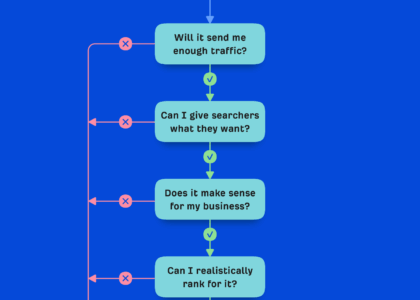The Importance of Checking Website Optimization
In today’s digital age, having a strong online presence is crucial for businesses to succeed. A well-designed website is a powerful tool that can attract customers, drive traffic, and increase conversions. However, simply having a website is not enough – it needs to be optimised for performance and user experience.
Why Website Optimization Matters
Website optimization involves improving various aspects of your site to enhance its speed, functionality, and visibility. Here are some key reasons why checking website optimization is essential:
- Improved User Experience: A fast-loading website with easy navigation and responsive design enhances user experience, leading to higher engagement and lower bounce rates.
- Higher Search Engine Rankings: Search engines like Google favour websites that are well-optimised for speed and mobile-friendliness, resulting in better visibility and higher rankings in search results.
- Increased Conversions: Optimised websites tend to have higher conversion rates as users are more likely to stay on the site, explore its content, and take desired actions.
- Competitive Advantage: In a competitive online landscape, a well-optimised website can set you apart from competitors and attract more visitors to your site.
Key Aspects of Website Optimization
When checking website optimization, it’s important to focus on the following key aspects:
- Page Speed: Ensure that your website loads quickly on all devices to provide a seamless user experience.
- Mobile Responsiveness: With the increasing use of mobile devices, make sure your site is optimised for mobile users.
- SEO-Friendly Content: Create high-quality content with relevant keywords to improve search engine visibility.
- User-Friendly Design: Use intuitive navigation and clear calls-to-action to guide users through your site effectively.
In conclusion, checking website optimization is essential for businesses looking to succeed online. By focusing on improving speed, user experience, and search engine visibility, you can create a website that attracts more visitors, engages users effectively, and drives conversions. Invest time and effort in optimising your site – the results will be worth it!
9 Essential Tips for Optimising Your Website’s Performance and SEO
- Ensure your website loads quickly to improve user experience and SEO.
- Optimize images by reducing file sizes without compromising quality.
- Use descriptive meta tags for each page to enhance search engine visibility.
- Make sure your website is mobile-friendly for better accessibility on all devices.
- Create high-quality, relevant content that engages visitors and boosts SEO.
- Check for broken links regularly to maintain a smooth user experience.
- Implement proper heading tags (H1, H2, etc.) to structure content effectively.
- Optimise your website’s URL structure for both users and search engines.
- Monitor and analyse website performance using tools like Google Analytics.
Ensure your website loads quickly to improve user experience and SEO.
To enhance user experience and boost search engine optimisation (SEO) rankings, it is crucial to ensure that your website loads quickly. A fast-loading website not only provides visitors with a seamless browsing experience but also signals search engines that your site is efficient and user-friendly. By prioritising speed optimisation, you can effectively engage users, reduce bounce rates, and improve overall site performance, leading to increased visibility and better SEO outcomes.
Optimize images by reducing file sizes without compromising quality.
Optimising images by reducing file sizes without compromising quality is a crucial tip for effective website optimisation. Large image files can slow down page loading times, leading to a poor user experience and lower search engine rankings. By compressing images while maintaining their visual integrity, you can significantly improve website performance without sacrificing the overall aesthetic appeal. This simple yet powerful technique not only enhances site speed but also ensures that your content remains engaging and visually appealing to visitors.
Use descriptive meta tags for each page to enhance search engine visibility.
Using descriptive meta tags for each page is a crucial tip in website optimization. Meta tags provide search engines with valuable information about the content of a webpage, helping them understand its relevance to users’ search queries. By including relevant keywords and concise descriptions in meta tags, websites can enhance their search engine visibility and attract more organic traffic. This simple yet effective practice not only improves SEO but also increases the chances of users clicking through to the website, ultimately leading to higher engagement and conversions.
Make sure your website is mobile-friendly for better accessibility on all devices.
Ensuring that your website is mobile-friendly is a crucial aspect of website optimization. With the increasing use of smartphones and tablets, it is essential to provide a seamless browsing experience across all devices. A mobile-friendly website not only improves accessibility for users on the go but also boosts your search engine rankings, as search engines like Google prioritise mobile-responsive sites. By making your website responsive and easy to navigate on mobile devices, you can enhance user experience, increase engagement, and ultimately drive more traffic to your site.
Create high-quality, relevant content that engages visitors and boosts SEO.
Creating high-quality, relevant content is a crucial aspect of website optimization. By producing engaging and valuable content that resonates with visitors, businesses can not only capture their interest but also improve their search engine rankings through enhanced SEO practices. Content that is informative, well-written, and tailored to the target audience not only keeps visitors on the site longer but also increases the likelihood of attracting organic traffic from search engines. Therefore, investing in creating compelling content is key to boosting user engagement and driving organic growth for a website.
Check for broken links regularly to maintain a smooth user experience.
Regularly checking for broken links is a crucial aspect of website optimization to uphold a seamless user experience. Broken links can frustrate visitors and deter them from exploring your site further. By ensuring that all links are functional and lead to the intended pages, you can enhance user satisfaction and maintain the credibility of your website. Regular maintenance to identify and fix broken links demonstrates your commitment to providing a reliable and user-friendly online environment for visitors.
Implement proper heading tags (H1, H2, etc.) to structure content effectively.
To enhance website optimization, it is crucial to implement proper heading tags such as H1, H2, and so on to structure content effectively. Heading tags not only improve the readability and organisation of your content but also play a vital role in search engine optimisation (SEO). By using heading tags correctly, you can signal the importance of different sections of your webpage to both users and search engines, ultimately improving user experience and increasing the visibility of your website in search results.
Optimise your website’s URL structure for both users and search engines.
Optimising your website’s URL structure is a crucial aspect of website optimization. By creating user-friendly and search engine-friendly URLs, you can enhance the overall user experience and improve your site’s visibility in search results. Clear and descriptive URLs not only make it easier for users to understand the content of a page but also help search engines better index and rank your site. By incorporating relevant keywords into your URLs and organising them in a logical hierarchy, you can boost both user engagement and SEO performance, ultimately driving more traffic to your website.
Monitor and analyse website performance using tools like Google Analytics.
To ensure effective website optimization, it is crucial to monitor and analyse website performance using tools such as Google Analytics. By utilising tools like Google Analytics, businesses can gain valuable insights into user behaviour, traffic sources, and conversion rates. This data allows for informed decision-making to improve site performance, identify areas for enhancement, and track the impact of optimization efforts over time. Regular monitoring and analysis of website performance are key steps in maintaining a high-performing and user-friendly online presence.




